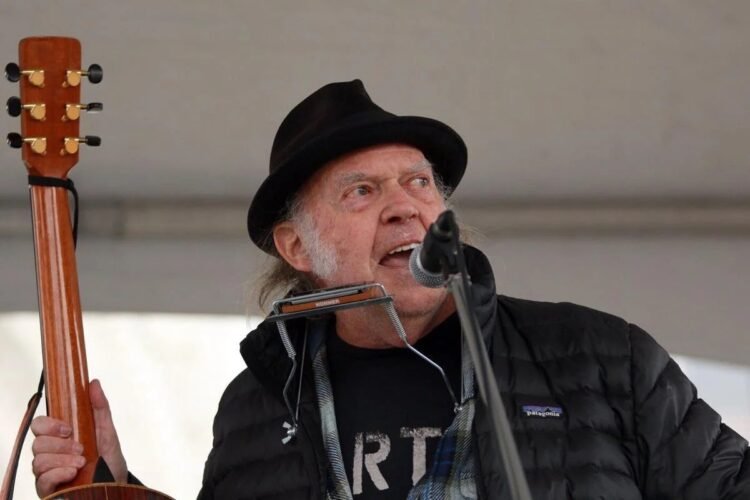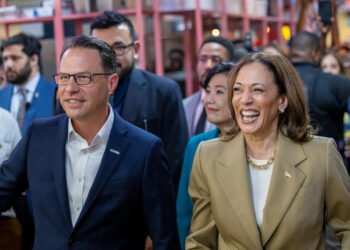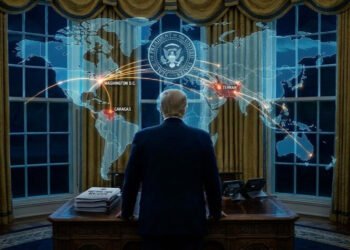TORONTO — Celebrity endorsements have brought a splash of star power to Canada’s federal election campaign, but political analysts are casting doubt on whether these high-profile nods will significantly influence voter behavior.
News that iconic rocker Neil Young had joined Hollywood comedian Mike Myers in endorsing Liberal leader Mark Carney made headlines recently. Yet despite the media attention, political observers like Professor Alex Marland say the actual impact on the April 28 vote may be minimal.
“Voters aren’t that blind or gullible,” said Marland, a political science professor and the Jarislowsky Chair in Trust and Political Leadership at Acadia University. He believes celebrity endorsements are more likely to raise general awareness or inspire voter turnout than directly influence political opinions.
“The whole issue is continuity and being able to remember it,” Marland explained. “So a Mike Myers endorsement becomes a thing because we see it in advertising, it’s repeated, maybe even parodied — it enters the culture a bit.”
He pointed to the U.S. presidential elections for context, noting that despite Democratic Vice President Kamala Harris receiving endorsements from megastars like Taylor Swift and Beyoncé, she still lost to Donald Trump, who had support from celebrities like Sylvester Stallone and MMA fighter Conor McGregor.
In contrast, Canada’s Conservative Leader Pierre Poilievre and NDP Leader Jagmeet Singh have not drawn endorsements from major celebrities. Brand expert Aron Darmody, an associate professor at Carleton University, noted that while Poilievre attracted favorable mentions from controversial U.S. figures like Elon Musk and Alex Jones last year, such ties would likely be unwelcome now due to shifting public sentiment around the U.S. political landscape.
“Any association with controversial figures could now be seen as toxic,” said Darmody, particularly with ongoing trade tensions and political unrest in the U.S.
Darmody and Marland both agree that celebrity endorsements run counter to the image Poilievre is trying to craft — that of an outsider, anti-elite candidate. “A big celebrity naturally supports a narrative of the establishment,” Marland added. “And Poilievre is trying to run against that.”
Looking back, Conservative campaigns haven’t leaned heavily on celebrity support. While Stephen Harper famously received backing from hockey legend Wayne Gretzky in 2015, Marland said it felt like a more “organic” alignment and still didn’t seem to sway the outcome. “I don’t remember anybody talking about it afterward,” he noted.
Neil Young’s endorsement of Mark Carney, on the other hand, surprised many observers. Carney’s resume includes top roles in global finance, including at the Bank of England and Bank of Canada — a background that appears to contrast with Young’s environmentalist, left-leaning image.
Still, the endorsement may speak to Carney’s perceived strength on international issues. In an open letter posted to his website on April 14, Young called Carney “the person our country needs to lead us through this crazy situation and bring us out the other side as a stronger, smarter, more resilient Canada.”
Professor Kevin Quigley of Dalhousie University said this could reflect growing concern among Canadians about their relationship with the U.S. and a desire for strong leadership on cross-border matters.
Despite the media buzz, experts say Canadian campaign finance laws limit the real-world impact of celebrity involvement. Unlike in the U.S., where stars can headline major fundraising events, Canadian rules cap individual donations — minimizing the practical benefits of celebrity-led efforts.
“You can’t bring in all these people that are going to lay down $5 million each the way you can in the United States,” Marland said.
Darmody echoed that sentiment, adding that with today’s fractured media landscape and ever-evolving definitions of celebrity, star endorsements may do more harm than good — especially in an election where serious issues like economic insecurity, sovereignty, and trade disputes dominate the agenda.
“If I was advising any party, I’d focus on boosting turnout among your existing base rather than chasing after celebrity clout,” Darmody said. “The stakes are too high to risk appearing out of touch.”

 English
English



























































